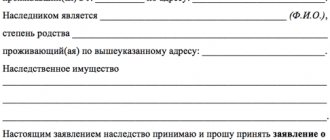Federal laws
Next in the hierarchical ladder are federal laws (FL). They are adopted by the State Duma, approved by the Federation Council by a simple majority of votes and signed by the President. A federal law acquires the status of a valid regulatory document 10 days after it was published in an official source. The provisions of these laws must be implemented throughout the country. Responsibility for their failure to comply occurs if it is provided for by the laws themselves. Acts whose legal force is less than the Federal Law cannot contradict them.
Grow rights
A system of laws is formed in the process of issuing legal norms, which are enshrined in official acts and systematized. In modern Russian legislation, several branches can be distinguished:
- Constitutional law regulates the foundations of the state and social system.
- Administrative law – regulates the scope of management activities of government bodies and their officials.
- Civil law – affects civil rights and freedoms, stipulates ways to restore and protect them.
- Criminal law - establishes punishment for crimes committed, as well as the grounds for prosecuting and releasing the perpetrators from responsibility.
- Procedural law – regulates the relationship between the court and participants in civil, administrative or criminal proceedings in the administration of justice.
- Criminal executive law – deals with the execution of criminal punishment.
- Financial law is associated with the expenditure of public finances. Affects the budget, tax, banking and currency spheres.
- Labor law – regulates labor relations.
- Land law - addresses issues of determining land ownership, land surveying, civil circulation of land and restrictions on its use.
The totality of these normative legal acts constitutes the Russian legislative system.
Legislative process in the Russian Federation
You already know that the law
- these are norms and rules established by the state that are binding on all people and regulate the most important social relations.
But laws are not born on their own. The emergence of a new law is a very difficult and long path, which is usually called lawmaking.
Legislative process
is the process of adoption and entry into force of laws, starting from the introduction of a bill and ending with the publication of the adopted law.
The lawmaking process includes the following stages: legislative initiative, preparation of a bill, submission of a bill to the State Duma, consideration of a bill in the State Duma, adoption of a law by the State Duma, approval of a law in the Federation Council, signing of a law by the President and promulgation of a law.
Let's get to know them in more detail.
The first stage in creating any law is a legislative initiative.
This is the right granted to a strictly defined circle of persons or institutions to submit proposals to improve legislation and specific legislative projects to bodies of representative government.
The right of legislative initiative belongs to:
Ø President of the Russian Federation;
Ø Federation Council;
Ø members of the Federation Council;
Ø deputies of the State Duma of the Russian Federation;
Ø Government of the Russian Federation;
Ø legislative (representative) bodies of the constituent entities of the federation;
Ø Constitutional Court of the Russian Federation;
Ø The Supreme Court of the Russian Federation.
State bodies or persons with the right of legislative initiative submit a draft proposed law or, as lawyers also say, a bill, to the State Duma for consideration.
It is worth mentioning here that a number of bills can be introduced only if there is an opinion from the Government of the Russian Federation; these include bills on the introduction or abolition of taxes and exemption from their payment, on the issuance of government loans, on changing the financial obligations of the state, as well as bills , which provide for expenses covered by the federal budget.
According to statistics, up to 60% of legislative initiatives in our country come from deputies of the State Duma. And this is no coincidence, because one of the tasks of the State Duma is the adoption and development of new laws, which ideally should protect and improve the life of an ordinary person.
After the bill is submitted for consideration by deputies of the State Duma, the main work on the future law begins. Initially, the draft law may be subject to preliminary discussion during parliamentary hearings. They discuss the most pressing and significant issues in the life of our country.
Parliamentary hearings are generally open to representatives of the media, public associations and the public.
At the hearings, along with the opinions of parliamentarians, the opinions of government and public figures, experts and specialists in the field are heard, and their comments, suggestions and recommendations are usually reflected in the text of the new law.
Hearings are usually organized by the parliamentary committee or commission responsible for developing the new law.
Also, any citizen of the Russian Federation has the right to make proposals or express his disagreement with any bill being developed on the federal portal of draft regulatory legal acts. This is the official website for posting information on the preparation of draft laws by federal executive authorities and the results of their public discussion.
This gives citizens of our country the opportunity to participate in the preparation of a draft law at a very early stage. Based on the description of the issues facing the developer, interested participants in the discussion can propose their approach to implementing a particular task or the desired concept of the document. Such proposals can be sent through the portal, as well as to the developer's postal or email addresses. Persons and departments responsible for the development of the law are required to consider all proposals received during the public discussion period and reflect their results on this portal.
After the text of the future law has been worked out and discussed by all interested parties, it is submitted for discussion at a meeting of the State Duma. The discussion of the future law is carried out three times or, as they say, in three readings.
During the first reading, the main, most important provisions of the bill are subject to discussion. If deputies disagree with the draft law in the first reading, it is transferred, along with all amendments, to the relevant relevant parliamentary committee responsible for its development. The committee is obliged to finalize the bill, taking into account the comments made and proposals made, and then submit it for consideration in the second reading.
During the second reading, which can be called the most thorough, there is a detailed, article-by-article discussion of the draft under consideration along with amendments (changes and additions) made to its original text. Then the bill again goes to the relevant committee, which prepares it for the third reading.
The third reading is the final discussion of the draft law in the lower house of parliament; during the third reading, deputies are not allowed to introduce any substantive amendments or proposals to the bill. Only editorial changes can be made. It is within the framework of the third reading that we are already talking about approval or disapproval.
The next stage is the adoption of the law by the State Duma. Depending on the type of law, there are differences in the adoption procedure. To pass an ordinary federal law, an absolute majority of the total number of deputies is required, that is, 50% plus one vote.
A federal constitutional law is adopted only if it is approved by the so-called qualified majority, i.e. at least two thirds of the votes.
The State Duma can adopt a law immediately and in the first reading (without holding a second and third).
After the law is adopted by deputies of the State Duma, it is submitted to the Federation Council for consideration within five days.
The law must be considered: accepted or rejected by the upper house of parliament within fourteen days.
Laws on the following issues are subject to mandatory consideration by the Federation Council:
· federal budget;
· federal taxes and fees;
· financial, currency, credit, customs regulation, money issue;
· ratification and denunciation of international treaties of the Russian Federation;
· status and protection of the state border of the Russian Federation;
· war and peace.
Next, the voting procedure is structured as follows. An ordinary federal law receives approval if more than half of the members of the Federation Council vote for it, and at least three-quarters of the total number of members of the Federation Council must vote for the adoption of a federal constitutional law.
If within fourteen days the law has not been considered in the upper house of parliament, then it is also considered approved.
But the Federation Council can not only approve, but also reject laws. In this case, the law is sent for revision and reconsideration to the State Duma.
To overcome the disagreements that have arisen between the chambers of parliament and to develop a common decision, a so-called conciliation commission can be created, after which the law is subject to re-examination by the State Duma and approval by the Federation Council.
If deputies disagree with the decision of the Federation Council, the law can be adopted without the consent of the upper house of parliament if at least two-thirds (2/3) of the total number of deputies of the State Duma voted for it during the re-vote.
The adopted law is submitted for signature to the President within five days, who must review and sign it within two weeks.
But the President also has the right to reject the law sent to him. This right of the president is also commonly called a “veto.”
Veto
is a right that means the power of a person or group of persons to unilaterally block the adoption of a particular decision.
The President can exercise this right only at the stage of signing the law and before it comes into force, and the reasons for the decision made by the President must be communicated to both chambers of the Federal Assembly.
In this case, the State Duma and the Federation Council, in accordance with the established procedure, again consider this law. If, upon re-examination, the law is approved in the previously adopted wording by a majority of at least two-thirds (2/3) of the total number of deputies of the State Duma and members of the Federation Council, then the law is considered adopted and is subject to signature by the President.
After the law is signed by the head of state, the law is promulgated and comes into force.
Purpose of publication
- this is to bring the content of the new law to the public by publishing it in a certain publication.
The official publication of a federal constitutional or federal law is considered to be the first publication of its full text in the “Parliamentary Gazette”, “Rossiyskaya Gazeta”, “Collection of Legislation of the Russian Federation” or the first posting on the official Internet portal of legal information.
If necessary, laws and other regulations may be additionally published in other press organs. In addition, regulations can be additionally published on television, radio, and also sent to government agencies or transmitted through other communication channels.
Also, the Constitution of our country states that unpublished laws do not apply, and any regulatory legal acts affecting the rights, freedoms and responsibilities of a person and citizen cannot be applied unless they are officially published for public information.
Federal laws come into force simultaneously throughout the entire territory of the Russian Federation ten days after the day of their official publication, unless the laws themselves or acts of the chambers establish a different procedure for their entry into force.
In our country, the legislative process takes place not only at the federal level, but also in the constituent entities of the federation. At the same time, all the main features inherent in the legislative process at the federal level are also present in regional legislative processes. These processes are regulated by the federal law “On the general principles of organization of legislative (representative) and executive bodies of state power of the constituent entities of the Russian Federation.”
At the end of our lesson, let's remember the main points.
1. What is law?
2. What is the legislative process?
3. What is the essence of a veto?
4. What is the purpose of promulgating the law?
5. How is a legislative initiative carried out and a bill created?
6. What is the content of the legislative activity of the State Duma?
7. What are the actions of the Federation Council and the President of the Russian Federation in the process of adopting the law?









